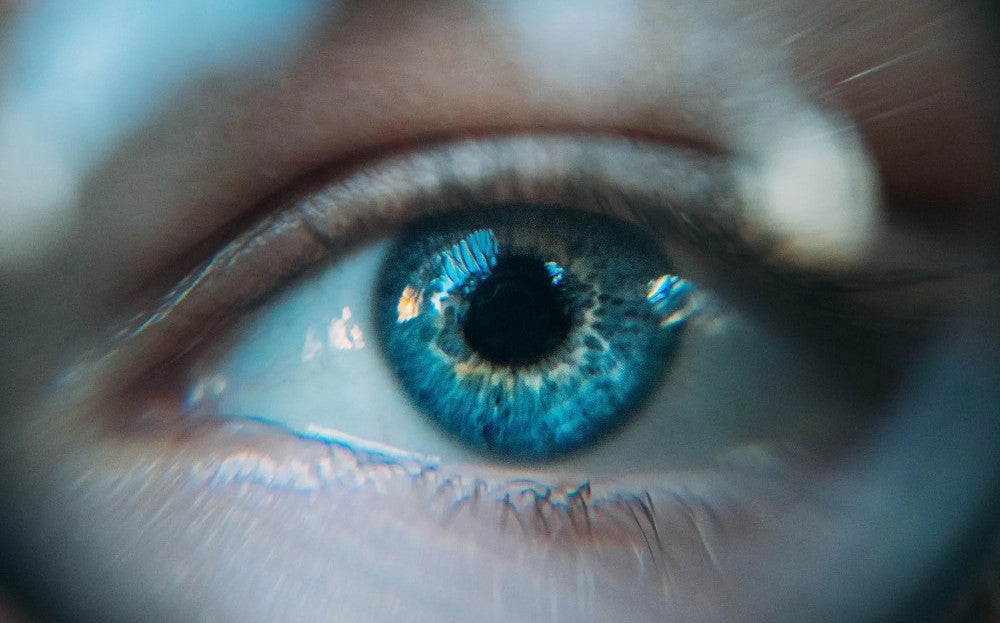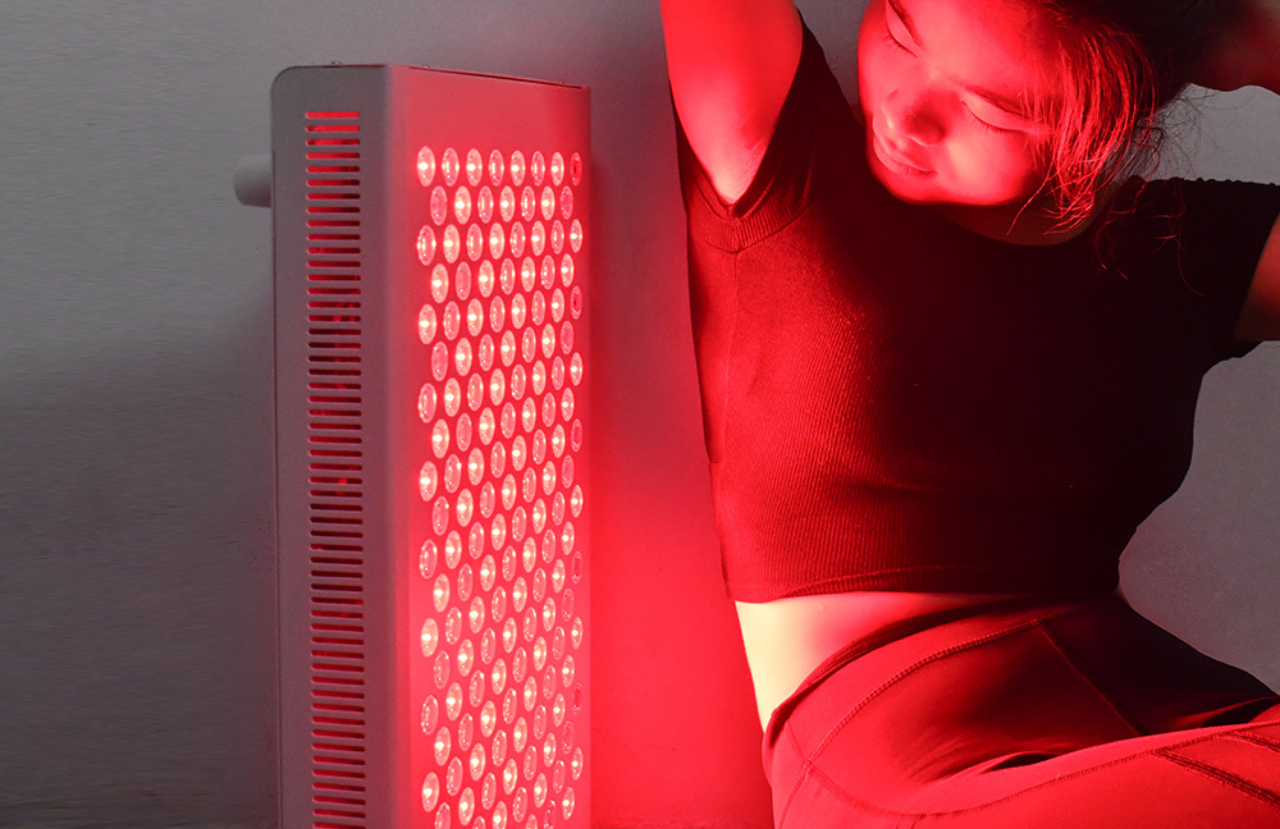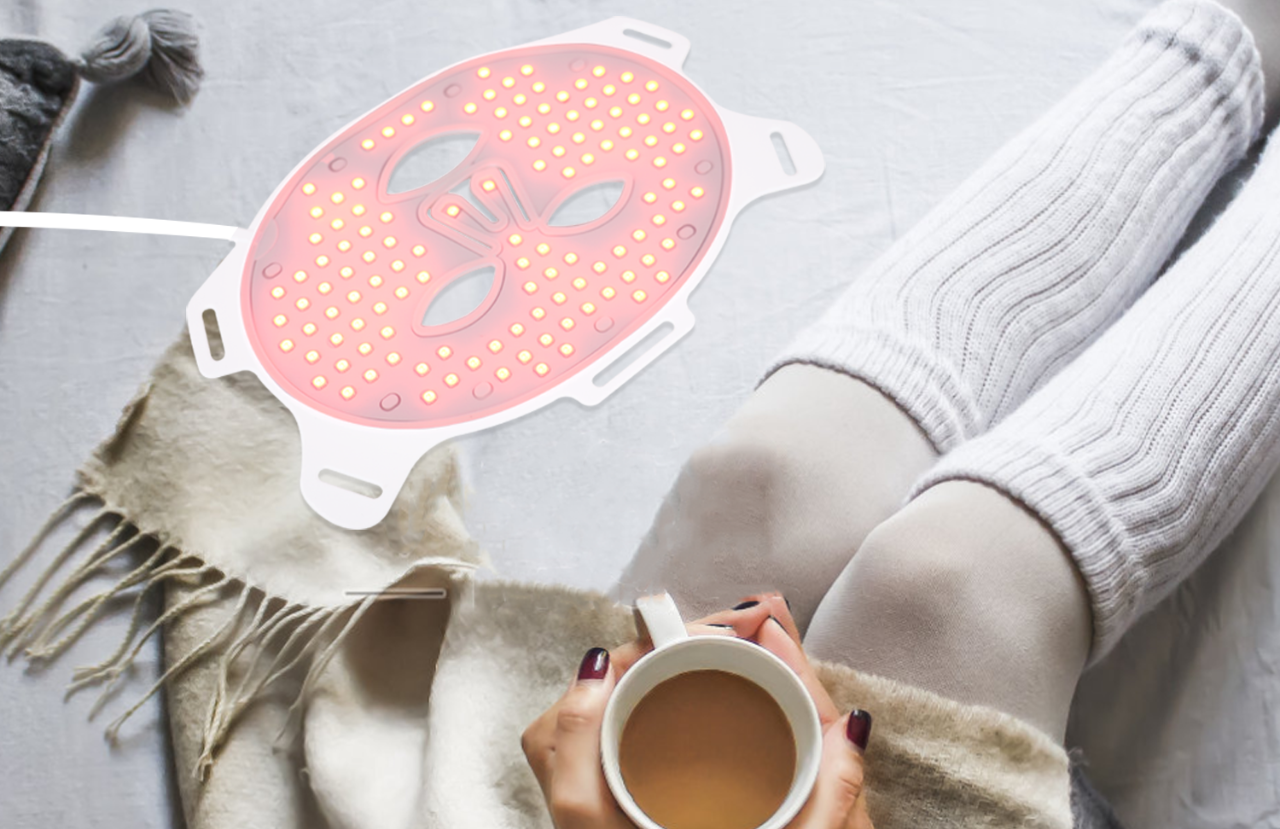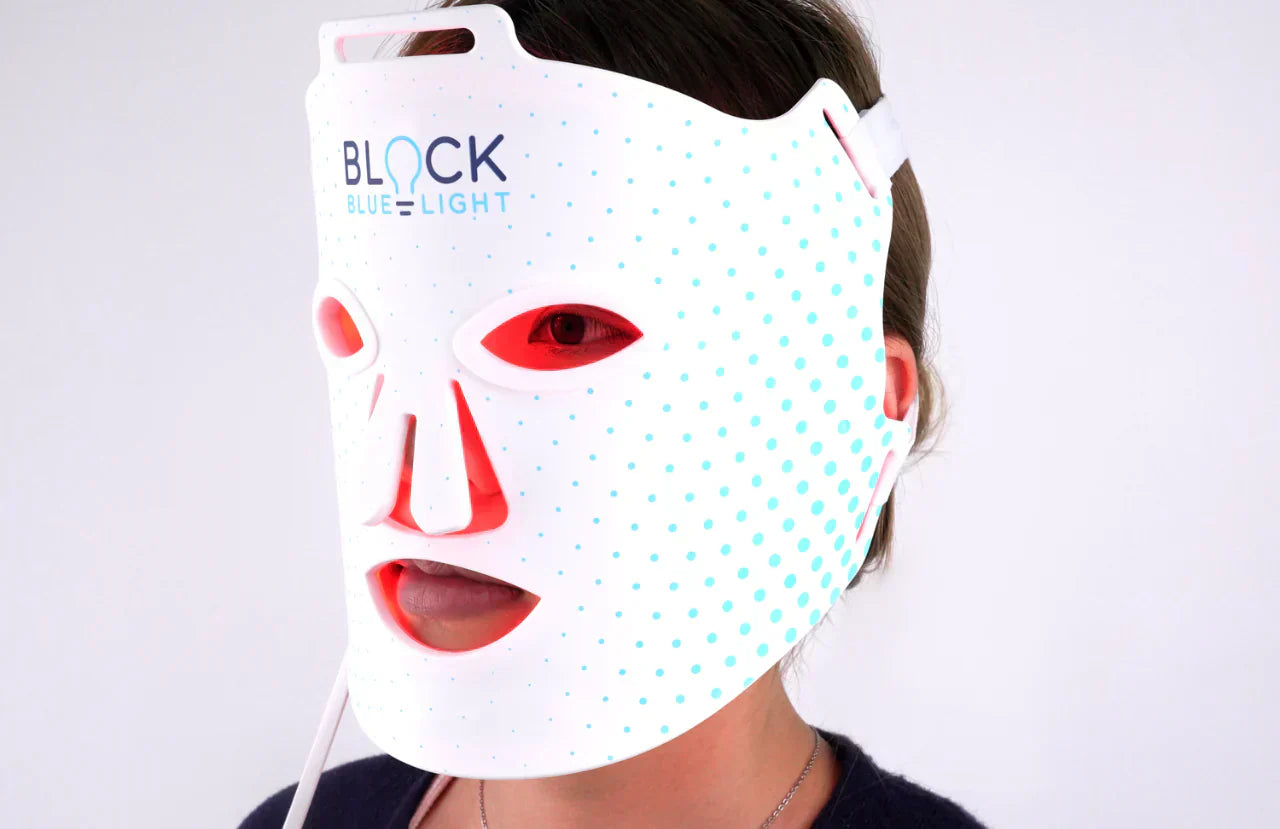If you have blue, green or hazel coloured eyes, you may have found that you need more respite from bright lights at work, than your brown-eyed counterparts.You may be wondering if it's a myth that people with light-coloured eyes are more sensitive to blue light, screens and LEDs.
Well, it’s a fact. Blue and green eyes are more sensitive to light
Why are light coloured eyes more sensitive to blue light?
Just like your skin has melanin which protects you from sunlight, your eyes also have the same melanin pigment. This pigment dictates which color your eyes are. It’s present in your iris (the coloured area around your eyeball.) The more melanin your iris has, the darker your eye color will be. People with dark brown and black irises have the highest amount of melanin.
However, you’re not born with your eye color! Caucasian babies are born with no melanin and therefore they have blue or gray eyes until they’re 2 or 3 years old. This is when their eyes darken to the permanent color. In contrast, most Asian, Brown and Black babies are either born with dark brown eyes or develop their permanent color within a couple of months!
Just as dark-skinned people naturally have more protection from the sun and are less likely to get sunburned, similarly those with brown and black-colored eyes naturally have a stronger shield against blue light. This is because the densely-packed pigment in the iris blocks the rays of light. This is similar to how a pair of sunglasses filter the light from the environment.
What does this mean for those with light coloured eyes?
Well, it’s not good news! If you have light coloured eyes, they are more sensitive to blue light because there’s less pigment in the layers of your irises to offer protection from blue light.
What has blue light got to do with light sensitivity?
Light is composed of 7 colour spectrums- the same spectrum that we see in the rainbow. Some of these colours carry more energy than the others.
You may have noticed that intense white light is more uncomfortable for your eyes than a muted red or yellow light. This is because white light, such as the light from LEDs and screens, contains mostly blue light which is higher in energy than other colours in the spectrum. Blue light has shorter frequencies and carries more energy (2.75 eV) than other colours. For example, red light carries 1.9 eV, as you can see form the table below

This is why exposure to blue light may be more uncomfortable for you if you light coloured eyes due to the increased energy it contains.
Blue light has a larger potential than other colors to cause sensitivity in the cornea after prolonged exposure, according to research. Research was carried out last year to identify the brain circuit implicated in blue light sensitivity, in which it was found that blue light exposure might result in ocular irritation and tears within the eye tissue.
Second, we have special ipRGC cells in the rear of our retina that are responsible for light sensitivity. A pigment called melanopsin, which is the primary receptor of blue light, is present in these cells. Thus our eyes are hyper-sensitive to blue light and have cells to detect it, unlike the other colors in the spectrum.
Since people with light coloured eyes are sensitive to blue light, they are more likely to develop photophobia. Photophobia is the medical term for light sensitivity. This doesn’t mean permanent loss of vision- just that light exposure may cause discomfort, pain, itching, red eyes and watery eyes. If you find yourself squinting or rubbing your eyes in bright lights, this may be an indication of photophobia.
Secondly, age-related macular degeneration is more common in Caucasians than in African-Americans, studies have shown. Whites are at the highest risk, followed by Asians and then African-Americans. This is because their eyes do not filter blue light rays as thoroughly.
Still, eye colour is not the whole story. AMD is also related to genes. Scientists have identified 20 or so genes that are linked to more than half of AMD cases. Unfortunately, whites lose out here too, because about 33% of white people have a gene that’s linked with AMD.
Severe vs mild light sensitivity in people with light coloured eyes:
The good news is, even though blue and green eyes are more light sensitive, there are measures that you can take to reduce the effects of light sensitivity.
Mild light sensitivity is a harmless condition, and simply using a pair of blue-light blocking glasses will help you overcome the symptoms of eye aches and itching. Mild light sensitivity doesn’t affect your ability to do everyday tasks.

However, severe light sensitivity could also be a symptom of an underlying, more serious eye condition. Possible causes of light sensitivity could be:
- Migraines or hyper-sensitivity to pain
- Eye problems such as Uveitis, glaucoma, cataracts, eye infections, or dilated pupils
- Corneal conditions such as dry eyes, herpes simplex keratitis (HSK), corneal abrasion, recurrent corneal erosion (RCE), corneal ulcer, and a number of other conditions
- Past surgeries- It’s typical to experience light sensitivity following corneal, cataract or conjunctival and other eye surgeries
If you have light sensitivity, get it checked by your doctor because it could signify an underlying condition.
What can I do if I have blue or green eyes which are sensitive to light?
Whether you have light coloured eyes or dark eyes, the solutions for light sensitivity are the same. You’ll either have to;
- treat the underlying medical condition which is triggering light sensitivity. This could involve medications or surgery, depending on what the condition is. During the healing period, and the period leading up to the treatment, you can fix the discomfort by wearing blue-light filtering glasses and replacing LEDs at home with eye-friendlier lighting options.
- If you don’t have an underlying condition and you simply have blue or green eyes which are naturally sensitive to light, you can incorporate a few simple measures that reduce your light exposure, so your life isn’t affected by your condition. This involves wearing a pair of blue light glasses when using screens, applying blue-light filtering covers on your phone or laptop, and by replacing bright LEDs with eye-friendly lighting options.
- If your light sensitivity has been triggered by a change in your behavior, such as working late nights with screens and LEDs, or an increase in screen time (such as if you’re a gamer), you can simply practice healthy screen habits and the discomfort will soon fade away. But, if you’re unable to reduce your hours, agin, blue light glasses and blue-free lighting will allow you to continue your tasks without the light sensitivity cropping up.
What to look for when buying protective glasses for light coloured eyes that are sensitive to light?
To reduce the effects of light sensitivity, you can use both blue-light filtering glasses and blue-free lighting. These solutions are the same if you have dark coloured eyes.
Blue light glasses and blue-free lighting are also the best solution if you suffer from eye strain when using screens for extended periods.
Blue light glasses:
Depending on the intensity level of blue light that they block, there are two types of blue-light glasses:
Daytime blue light glasses
Daytime blue light glasses filter 50-70% of blue light across the entire spectrum (380-450nm). They don’t block 100% of blue light because a small percentage of blue light is needed during the day to keep your circadian rhythm in check.
If you have mild light sensitivity:
If you have light coloured eyes that are mildly sensitive to light, the ScreenTime Computer Glasses range glasses will work best for you. These glasses have transparent lenses and are available in a range of stylish models. These glasses block 50% of the full spectrum of blue light.
If you have severe light sensitivity:
If you have severe light sensitivity or are a heavy screen user, the DayMax Blue Light Glasses range glasses work best. These have a slight yellow tint and provide more protection (70%) than transparent lens glasses.

Night-time blue light glasses:
The glasses block 100% of blue light. This is because, after the sun sets our eyes aren’t supposed to be exposed to any blue light at all.
These glasses are mostly used by people to improve melatonin levels and sleep quality. But if you have severe light sensitivity, these could work for you in the evenings and at night too. Nighttime glasses include the both SunDown Blue Blocking Glasses Range which have an amber tint and they block 100% of the full spectrum of blue light, and also the red-tinted NightFall glasses.
If the colour change isn’t something you’d be bothered by, we suggest you go for the NightFall Blue Blocking Glasses range. These glasses block green light as well as blue light. Studies have shown that the green light spectrum from 500-550nm has the same effect as the blue light on melatonin. These glasses are the best protection if you suffer from sleep problems and insomnia.
If you don’t like wearing glasses, you can also opt for blue light-free lighting, which does the same job, except it targets the LED lights in your home.

When buying any blue light glasses or blue-free lighting, check the spectrum report on the manufacturer's website, for proof that the glasses are actually filtering the right wavelengths. For all you know, you could simply be wearing a pair of glasses with coloured lenses that do nothing to filter blue light! In the spectrum report, check if the full spectrum of blue light is being filtered.
All of BlockBlueLight’s glasses have lab-grade spectrum reports attached with the product details.
References:
https://www.dukehealth.org/find-doctors-physicians/anupama-b-horne-md
https://scied.ucar.edu/image/wavelength-blue-and-red-light-image





